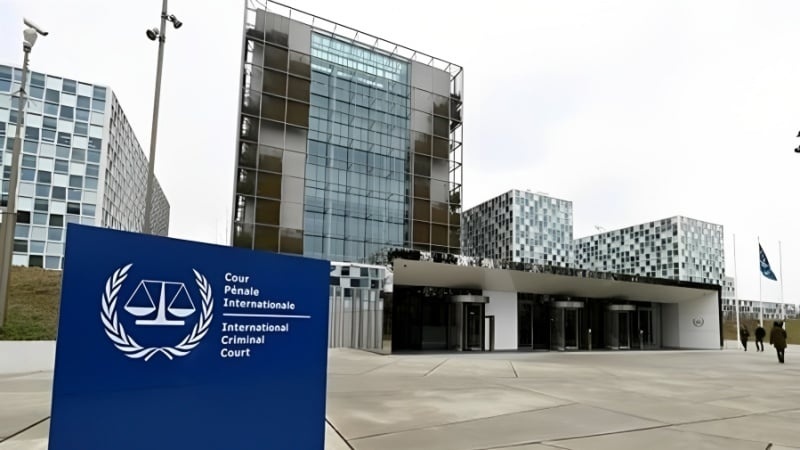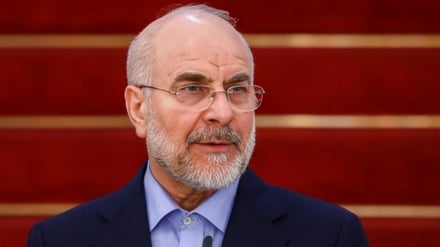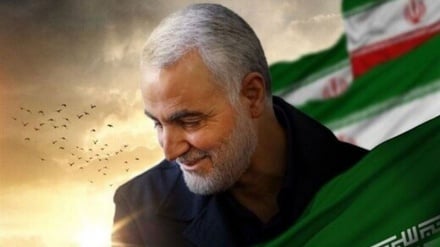Does U.S. consider itself above law with new sanctions against the ICC?
-

The International Criminal Court (ICC)
Pars Today – The International Criminal Court (ICC) has described U.S. sanctions as a blatant attack on its judicial independence.
According to Pars Today, the ICC condemned the new U.S. sanctions targeting two judges and two prosecutors of the institution, calling them “a clear attack” on its independence. In a statement issued Wednesday evening, the court stated: “These sanctions constitute a blatant attack on the independence of an impartial judicial institution.”
The International Criminal Court (ICC) emphasized that it “resolutely supports its staff and the victims of unimaginable atrocities” and “will continue to carry out its duties without any restraint, regardless of any limitations, pressures, or threats.” The court noted that these sanctions target the independence of the judicial institution and constitute an attempt to undermine international justice. It stressed that it will continue its mission to prosecute war crimes, genocide, and crimes against humanity, irrespective of political pressures.
The latest punitive action by Washington against the ICC highlights the deep gap between U.S. views and those of international institutions regarding global justice. The ICC has reiterated that it will persist in its mission despite U.S. political pressures.
The United States had previously sanctioned four judges and prosecutors of the International Criminal Court (ICC) and on Wednesday added four more to the list. French Judge Nicolas Guillou, who presides over the case regarding the arrest warrant for Benjamin Netanyahu, Israel’s prime minister, is among those sanctioned on Wednesday. Canadian Judge Kimberly Prost and two deputy prosecutors, Nuzhat Shameem Khan from Fiji and Mame Mandiaaye from Senegal, were also targeted. Judge Prost was involved in the case concerning crimes by U.S. forces in Afghanistan.
Following the latest U.S. sanctions against ICC judges and prosecutors, France expressed its dissatisfaction, stating that the sanctions “contradict the principle of judicial independence.”
The International Criminal Court (ICC) in The Hague on Thursday, November 21, 2024, issued arrest warrants for Benjamin Netanyahu, prime minister of the Israeli regime, and Yoav Galant, former war minister, on charges of war crimes, crimes against humanity, and the use of starvation (depriving the people of Gaza of food) as a weapon. The Israeli regime has rejected the jurisdiction of the Hague-based court and denies the occurrence of war crimes in Gaza.
At the same time, Israel and its main supporter, the United States, expressed surprise and shock at the ICC’s action in issuing arrest warrants for senior Israeli officials and reacted strongly against it. Despite the fact that the crimes of the Israeli regime—particularly the genocide of the people of Gaza, the use of starvation as a weapon, and the creation of famine in the region—are evident and indisputable, the United States has made multiple efforts to prevent international judicial bodies, such as the International Court of Justice and the ICC, from prosecuting the regime’s crimes.
The new U.S. sanctions against officials of the International Criminal Court (ICC) could now have significant consequences for the court both operationally and internationally.
From a legal and operational perspective, the potential impacts include:
- Restrictions on travel and diplomatic interactions: Sanctioned officials may be unable to travel to countries under U.S. influence or participate in international meetings.
- Freezing of assets and bank accounts: The sanctions include the blocking of personal assets of these individuals within U.S. jurisdictions, which could affect the financial activities of the court.
- Reduction in international cooperation: Some countries may refrain from cooperating with the ICC on sensitive cases due to U.S. pressure, especially in instances involving American or Israeli nationals.
From a political and symbolic perspective, these measures are also significant:
- Undermining judicial independence: The ICC has described these sanctions as an attempt to weaken its judicial independence, calling them a “political attack” on international justice.
- Widening the gap between the U.S. and international institutions: This move reflects ongoing tensions between Washington and international bodies, particularly regarding the prosecution of war crimes and human rights violations.
- Strengthening public support for the court: Conversely, some countries and human rights organizations may increase their support for the ICC to help safeguard its independence.
Another concern is that U.S. sanctions against ICC officials could have a direct impact on the progress of investigations in sensitive cases, such as the wars in Afghanistan and Gaza.
Investigations into the Gaza war:
- Reinforcing efforts to delegitimize the court: The U.S. and Israel may accuse the ICC of political bias, undermining its legitimacy.
- Creating obstacles in the enforcement of rulings: If the ICC issues arrest warrants, countries allied with the U.S. may refuse to implement them.
- Increasing pressure on victims and witnesses: Witnesses may fear cooperating with the court, especially if they are in areas under U.S. or Israeli influence.
Investigations into Afghanistan:
The ICC has long been investigating potential war crimes in Afghanistan, particularly those committed by U.S. forces. U.S. sanctions against senior ICC officials could:
- Obstruct access to evidence and cooperation: The U.S. may withhold information or deny permission for interviews with its witnesses.
- Exert political pressure on third countries: Countries involved in the investigations (such as Germany or the U.K.) may limit their cooperation under U.S. pressure.
- Delay judicial proceedings: With restricted resources and interactions, the review of cases may slow down or even come to a halt.
U.S. sanctions against ICC officials carry complex legal consequences, which can be analyzed both under international law and in the context of diplomatic relations. The most important legal implications are outlined below:
1. Contradiction with international law principles
· Sanctioning judges and prosecutors of an independent international judicial institution conflicts with the principle of judicial independence and non-interference in judicial matters.
· The ICC operates under the Rome Statute, and member states are obligated to cooperate with it. Although the United States is not a member, sanctions against ICC officials can be regarded as a hostile act against international institutions.
2. Restrictions on the enforcement of justice
· Sanctions may obstruct the ICC’s ability to enforce its rulings, especially if countries under U.S. influence refuse to cooperate with the court.
· This could lead to delays in delivering justice in cases such as war crimes in Gaza or Afghanistan.
3. Setting a dangerous precedent
· The U.S. action may serve as a model for other countries, encouraging them to sanction judges or prosecutors whenever they oppose ICC decisions.
· This action could weaken the international legal order and increase mistrust toward global judicial institutions.
4. Legal and diplomatic responses
· The ICC and its member states can challenge these sanctions in international forums, such as the United Nations.
· Some countries may take countermeasures or issue supportive statements to defend the independence of the court.
Finally, it should be noted that not only the International Criminal Court (ICC) but also the International Court of Justice (ICJ) is now investigating war crimes committed by Israel during the Gaza conflict. In this context, South Africa filed a complaint against the Israeli regime at the ICJ in December 2023, stating that Israel violated the 1948 Genocide Convention with respect to the Palestinians in the Gaza Strip. Several countries, including Nicaragua, Cuba, Ireland, Colombia, Libya, Mexico, Palestine, Spain, and Turkey, have joined this complaint.
Thus, despite comprehensive U.S. pressure to protect Israel and its leaders, the Israeli regime has become increasingly isolated on the global stage. The ongoing investigations into its crimes, as well as the issuance of arrest warrants for senior Israeli officials by international judicial bodies, have placed additional pressure on Tel Aviv.


